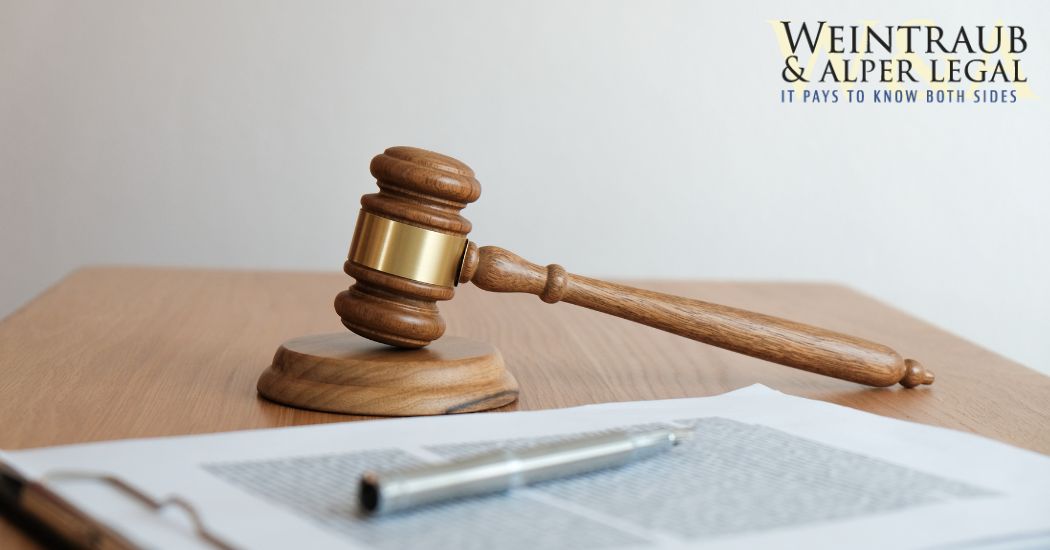If a criminal record in Georgia has burdened you, you likely already know how it can impact important aspects of your life. A criminal record can affect your employment opportunities, housing applications, and more. However, Georgia law provides a pathway for eligible individuals to have their criminal records restricted or "expunged." By doing so, you can gain a fresh start and leave past mistakes behind.
This blog dives into what crimes can be expunged in Georgia, helping you understand your rights and what steps you can take to clear your record.
What Does “Expungement” Mean in Georgia?
Georgia uses the term “record restriction” rather than expungement. This means that while your criminal record isn’t completely erased, restricted records are hidden from public view. Employers, landlords, and others conducting background checks will not see the restricted charges. However, law enforcement and certain government entities can still access these records.
The process of obtaining record restriction involves meeting specific criteria outlined by the state.
Crimes Eligible for Expungement in Georgia
Not every criminal offense qualifies for expungement in Georgia. The state has stringent rules regarding eligibility. To help you determine whether your case qualifies, here’s an overview of the types of crimes commonly eligible for record restriction:
1. Charges Not Resulting in Convictions
If your case did not result in a conviction, you might be eligible for record restriction, such as:
- Dismissed Charges: If the prosecution dismissed the charges against you, you likely qualify for record restriction.
- Acquittals: If you were found not guilty at trial, your record can generally be restricted.
- Nolle Prosequi (Charges Dropped): Cases where the prosecutor voluntarily decides not to pursue charges.
Important Note: Cases dismissed due to a plea agreement for a different charge may not qualify for restriction.
2. Cases Under Conditional Discharge
Certain offenses resolved through conditional discharge may qualify for record restriction. Under Georgia law, conditional discharge allows first-time offenders to complete probation or specific conditions without receiving a formal conviction. Examples include:
- Simple possession of controlled substances (first offense)
- Some misdemeanor offenses under conditional probation
Once you fulfill the conditions of discharge, you may petition for record restriction.
3. Youthful Offender Convictions
Georgia provides an opportunity for youth offenders (under 21 years old) to seek expungement for certain misdemeanor offenses. This provision acknowledges youthful mistakes and offers young individuals a second chance to move forward with a clean slate.
Cases that may qualify include:
- Minor misdemeanors
- Specific nonviolent offenses
4. Restrictable Misdemeanor Convictions
Certain misdemeanors may be eligible for record restriction if they meet Georgia’s requirements. However, the process may vary depending on factors like the type of offense, completion of sentencing, and whether this is your first conviction.
5. First Offender Act Cases
Georgia’s First Offender Act provides substantial relief to individuals who successfully complete probation or sentencing requirements. If you were sentenced under this act, your criminal history may be restricted after completion and without further legal complications. Examples of cases under the First Offender Act include:
- Certain drug offenses
- Nonviolent property crimes
Crimes That Are NOT Eligible for Expungement
While Georgia does allow record restriction for many offenses, certain crimes are explicitly excluded from eligibility. These include:
- Violent felonies such as murder or armed robbery
- Sexual offenses such as rape or sexual battery
- Crimes against minors
- Serious traffic offenses, including DUI convictions
Additionally, if you have multiple convictions from a single incident, this may make you ineligible for expungement. The specifics depend on the details of your cases.
How to Apply for Record Restriction in Georgia
If you believe you qualify to have your record restricted, the process generally unfolds as follows:
Step 1: Obtain Your Criminal History
Start by requesting a copy of your criminal history from the Georgia Crime Information Center (GCIC). Your history will detail whether your records are eligible for restriction.
Step 2: Determine Eligibility
Review your criminal history carefully or consult with an attorney to identify charges eligible for restriction. Georgia law has strict guidelines, so understanding the details is crucial.
Step 3: Submit an Application for Record Restriction
The application process depends on the circumstances of your case:
- For offenses not resulting in convictions, you’ll need to submit a Record Restriction Application to the arresting agency.
- For convictions, your application will likely be submitted to the appropriate court.
Step 4: Await Approval
The prosecuting attorney or judge will review your application. If approved, your criminal record will be restricted and will no longer appear on public background checks.
Step 5 (Optional): Seek Legal Assistance
Navigating the expungement process can be complicated. An experienced attorney can help you meet important deadlines, assess eligibility accurately, and advocate for your record restriction.
Atlanta Criminal Defense Lawyer Protecting Your Rights
A criminal record doesn’t have to define the rest of your life. Georgia’s record restriction process exists to give individuals a second chance. Whether your charges didn’t result in a conviction or you qualify under the First Offender Act, understanding your rights and the process is the first step toward a brighter future.
If you’re unsure about your eligibility or need help navigating the process, don’t wait. Connect with a criminal defense attorney from Weintraub and Alper Legal who can provide tailored advice based on your unique situation.
Take control of your future today. Contact our team at (404) 907-1536 to learn how we can assist with your expungement or criminal case.







.1).2403211302550.jpg)